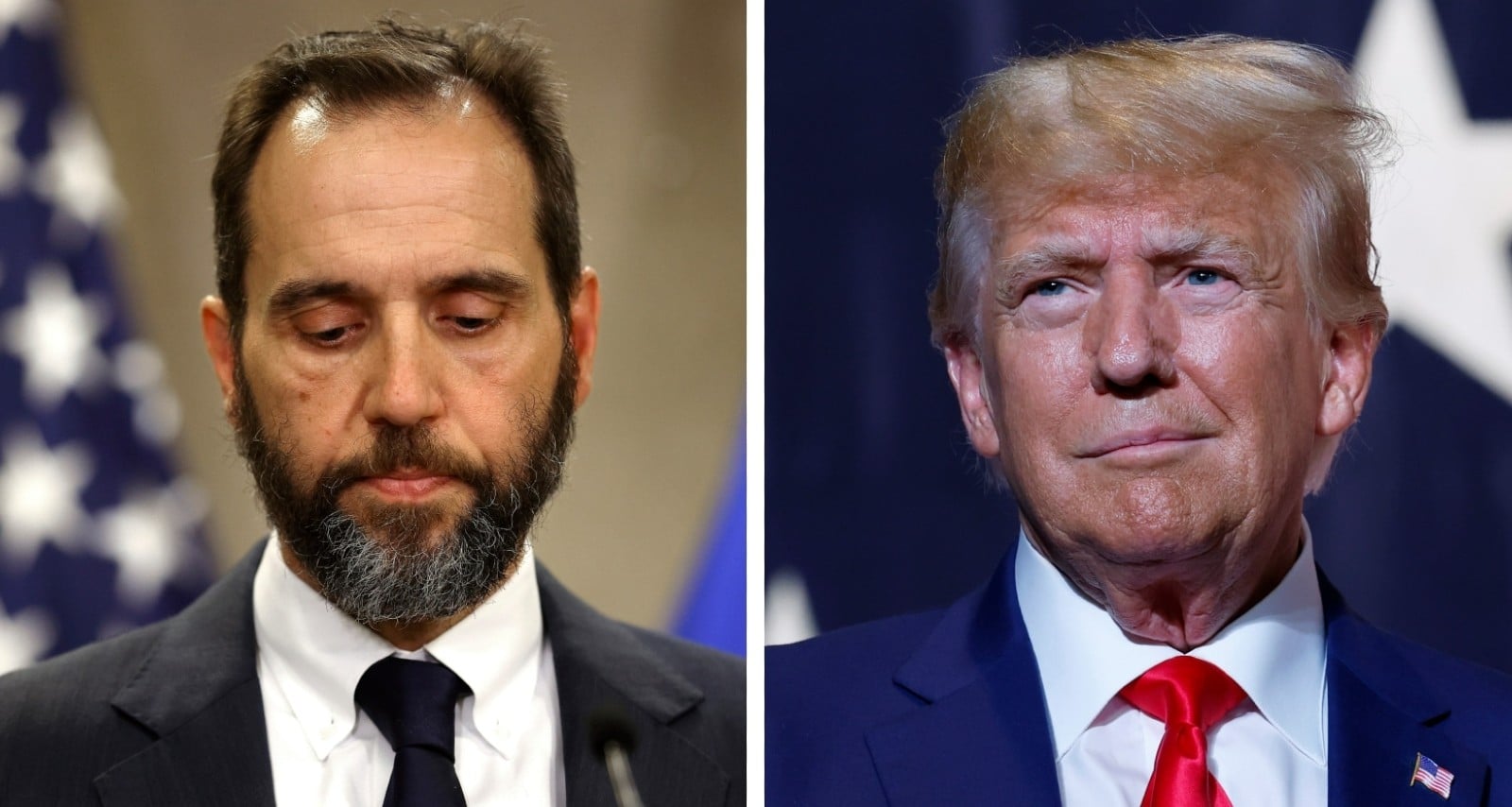OPINION: This article may contain commentary which reflects the author's opinion.
Special Counsel Jack Smith’s investigation into alleged “election interference” by former President Donald Trump appears to have reached a standstill.
Smith may be wrapping up his investigation into whether Trump’s campaign misled investors by presenting false election claims after the 2020 election against Joe Biden, according to people who spoke with The New York Times.
Smith’s team has “quietly withdrawn a subpoena seeking records from” Trump’s 2020 campaign “as part of their investigation into whether Mr. Trump’s political and fund-raising operations committed any crimes as he sought to stay in power after he lost the election,” two sources told the Times.
Continuing, the Times noted, “The office of the special counsel, Jack Smith, decided this week to effectively kill the subpoena to the Trump campaign following the withdrawal of a similar subpoena to Save America, the political action committee that Mr. Trump’s aides formed shortly after he lost the race in 2020.”
The outlet also pointed out that the fact that Smith’s office is withdrawing the subpoenas it had served to Donald J. Trump for President, Inc., and the Save America PAC implies that it is wrapping up its investigation into whether the former president broke any laws when he claimed the 2020 election was rigged to benefit himself.
The Times also credited the Washington Post for first reporting that the subpoena issued to Save America was withdrawn.
The Times said that Trump’s political operation raised nearly $250 million off of claims that the 2020 election was stolen—claims that were never proven to be accurate.
“Trump’s team has long maintained that the financial inquiry by Mr. Smith’s office would struggle to yield any charges. Political fund-raising materials often engage in bombast or exaggeration, and a fine line exists between criminal behavior and solicitations protected by the First Amendment,” The Times noted.
Meanwhile, the federal judge overseeing Trump’s classified documents case handed Smith’s prosecutors another stinging defeat last week.
U.S. District Judge Aileen Cannon brutally rejected a request by prosecutors to deny defense attorneys access to certain documents and materials during the discovery process. In a ruling, she said that Smith’s team’s efforts to restrict discovery were based on a “broad and unconvincing theory” as well as an “atextual” and “almost blithe” interpretation of the corresponding federal statute, The Western Journal reported.
Smith made the request after accusing Trump valet Walt Nauta and Mar-a-Lago property manager Carlos De Oliveira of working together to illegally keep classified documents at the former president’s South Florida home.
Cannon ruled that the Office of Special Counsel had interpreted the Classified Information Procedures Act too broadly, stating that this interpretation did not align with a literal interpretation of the statute.
She noted in her ruling that Smith’s team wants to restrict Nauta and De Oliveira “almost entirely from reviewing classified discovery to be produced in the case and then placing the burden to justify otherwise on defense counsel.”
Smith’s team cited Section 3 of the CIPA law to make their request, which states: “Upon motion of the United States, the court shall issue an order to protect against the disclosure of any classified information disclosed by the United States to any defendant in any criminal case in a district court of the United States.”
Cannon, a Trump appointee, ruled that a simple reading of the law doesn’t support Smith’s position—that attorneys for the defendants should be restricted across the board from reviewing documents that would be used at trial as proof that they mishandled classified documents.
The judge noted that the CIPA statute distinguishes between the defendants themselves and their lawyers.
“In the OSC’s view, even though Section 3 refers to ‘defendant’—and even though Congress elsewhere in CIPA specifically referred to ‘any attorney of the defendant’ as distinct from ‘the defendant,’ see CIPA § 2—the Court nevertheless must read the term ‘the defendant’ in Section 3 to mean ‘attorney for the defendant’ and then simultaneously interpret Section 3 to exclude ‘the defendant’ facing criminal indictment, at least in cases where the government proffers a basis to object to such disclosure pretrial,” she wrote in her ruling.
She then labeled the special counsel’s position a “broad and atextual interpretation” of the law.
